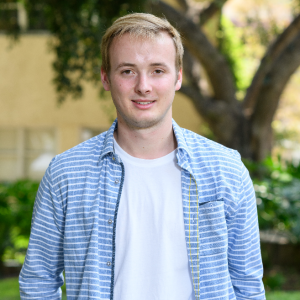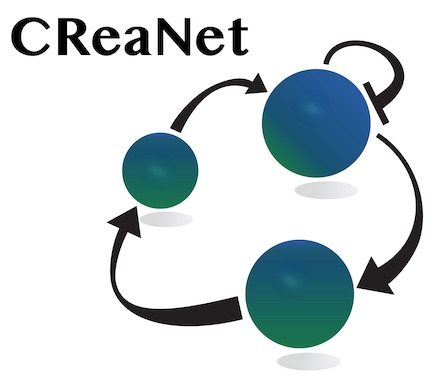
1. Please tell us a little about yourself. Where are you from and what is your research background?
Hello everyone! My name is Julius and I am originally from Germany. I conducted my Bachelor’s and Master’s studies in Biomedical Chemistry at the Johannes-Gutenberg University in Mainz. Subsequently, I joined the Max Planck Institute for Polymer Research in Mainz for my Master thesis. Currently, I am working on my Ph.D. in Israel at the Weizmann Institute of Science.
2. Tell us briefly about the research project you have been doing as a Marie Curie Fellow?
Very broadly speaking, we are interested in the behavior and responsiveness of small molecules under confinement. Very interesting things happen when ‘simple’ molecules are organized in a predetermined way and if their movements and rotations are hindered and limited. We are using supramolecular and photochemical tools that can be embedded in more complex reaction networks to contribute to the broad and fascinating scope of CreaNet.
3. Why did you choose to apply for this particular project?
The approach to modify molecular properties not by synthetic modifications but simply by reorganization is highly fascinating for me. This field of ‘chemistry beyond the molecule’, even though developed (and awarded) many decades ago, still opens infinite options to overcome the inherent limitations of traditional molecular design.
4. As a researcher, which goals and ambitions do you have for your future career?
Let’s see! For now, I really enjoy the flexibility that comes along with being an early-stage researcher. I would like to stay as open as possible for different scientific fields, locations, as well as career pathways in the future. Where I’ll end up in several years from now is very hard to predict, but it should certainly align well with my private plans and ambitions.
5. Who is your favorite scientist?
I don’t really know what to answer here, and I never asked myself this question. While there is no doubt that there have been numerous outstanding scientists during the last decades and centuries in chemistry and beyond, I couldn’t really name a role model. For me, one of the key aspects of research is that, after all considerations, it always comes down to the science, not the researcher. From a different perspective, one should emphasize that scientific success is only to a limited degree a factor of pure brilliancy and the factor of ‘being in the right position at the right time’ can’t really be overestimated: how many bright minds have never been mentioned as a response to this kind of question simply because they were too modest and didn’t actively claim the fame they deserved for their discoveries?
6. What was your first impression when you arrived in your host country?
It’s hot. At least outside in summer. But beyond that, Israel is also incredibly full of things, facts, and places to discover.
7. Why is your project important for society?
The future will show. There are probably hardly any projects in basic research with a clear and direct path towards ‘positive impact for society as a whole. But I think that the past (and the presence!) shows that innovation comes from unprecedented and unpredictable places. We are already curious to learn how our research in supramolecular chemistry will one day contribute to new materials, medical usage, or simply be the offspring of research in novel directions.
8. Marie Curie fellowship requires a lot of travels, why mobility is important for research?
The overall amount of traveling is certainly limited during our time as ESRs, due to the global pandemic. But at least this makes it easier to answer this question: While technologies allow more and more communication to proceed online via various channels, the few in-person meetings we had were much more inspirational than those ‘online-only’. As long as online tools can not substitute all small different shades of human interactions, personal meetings that include traveling will remain a key factor for scientific success.
9. How did you find your passion for chemistry?
Passion is a big word. But for me, chemistry is probably a very fascinating research area because everything we do can somehow be experienced with many of our senses: solutions change their colors, exothermic reactions warm up the environment, explosions are very loud. This, together with the fact that we use our understanding of molecular interactions to actually design macroscopic, ‘sensible’ matter makes it very easy to feel attached to chemistry.
10. Do you have any advice for other young researchers who are considering applying for a Marie Curie fellowship?
Go ahead, give it a try! If you are planning a Ph.D. in science, you are interested in getting to know new places, and if you enjoy collaborating with skilled people – I am not aware of a better or similar opportunity for you.
